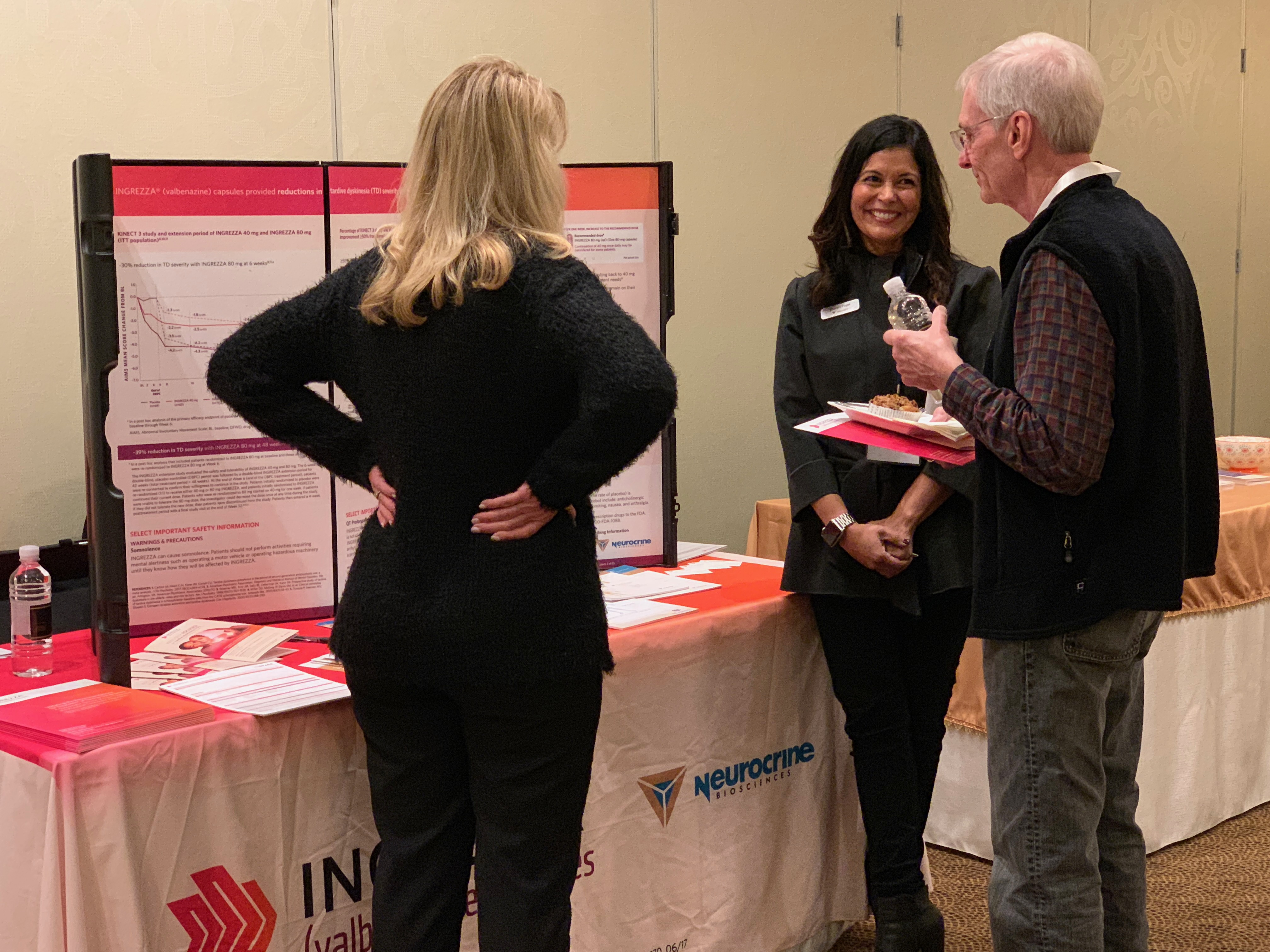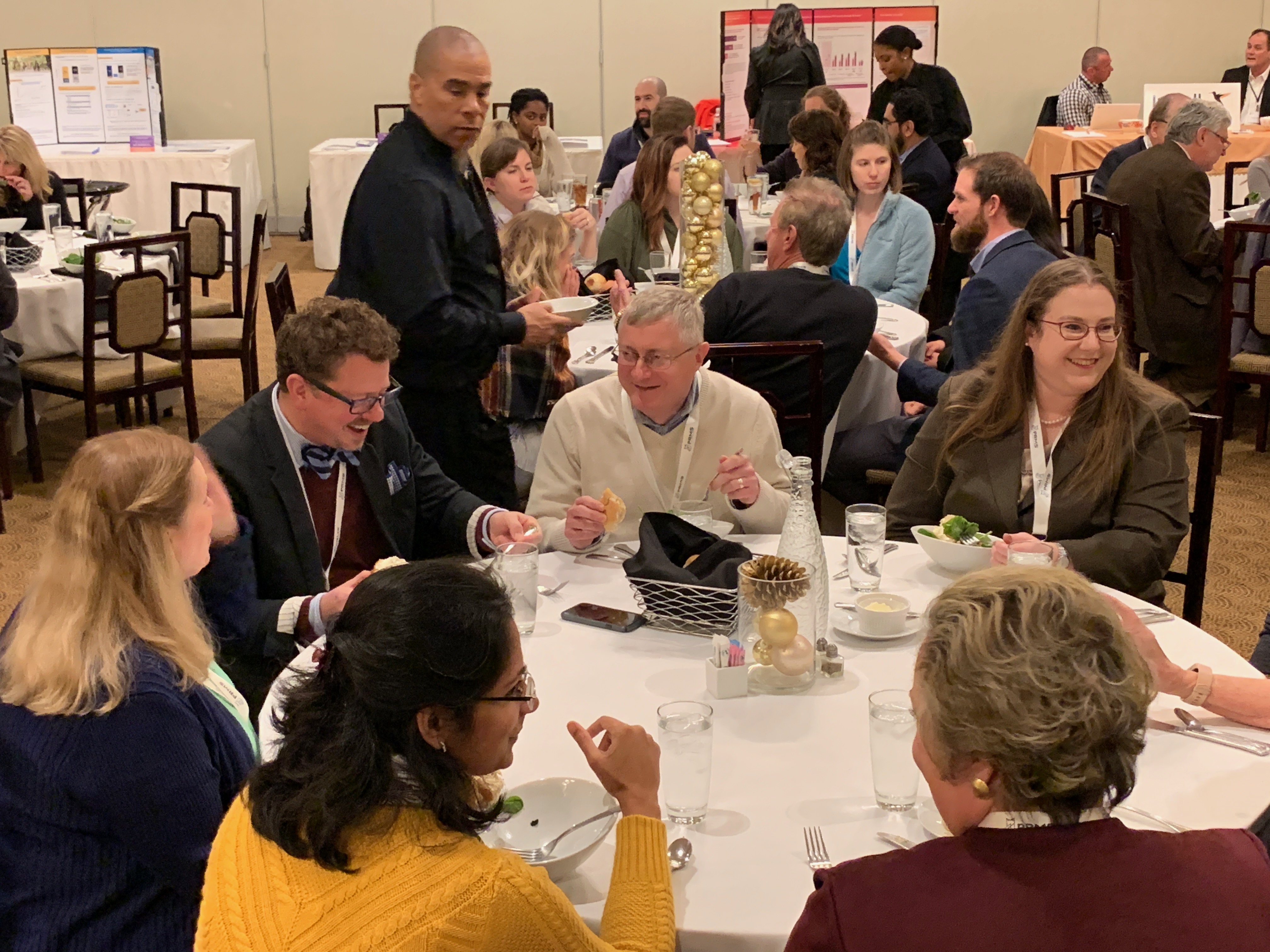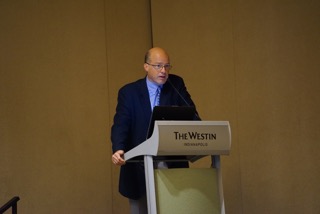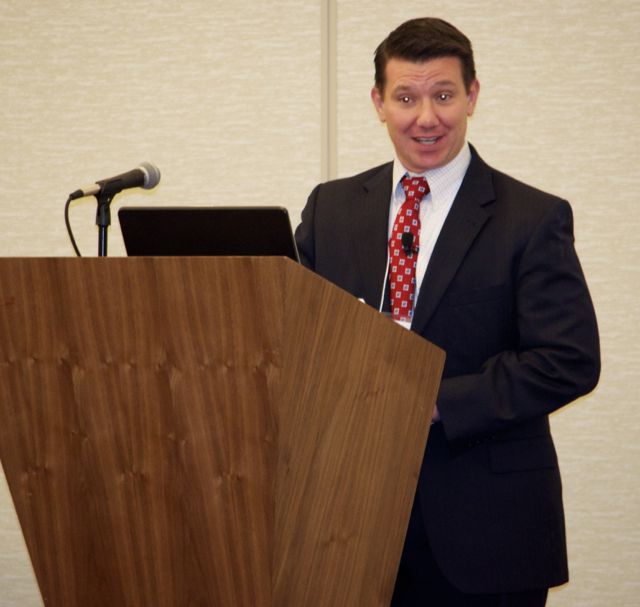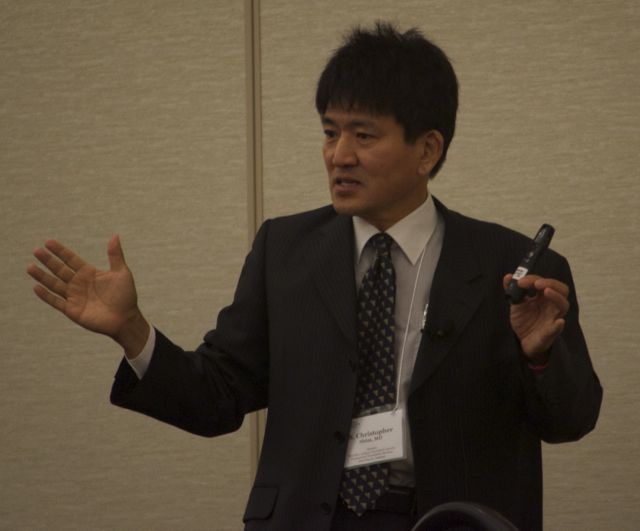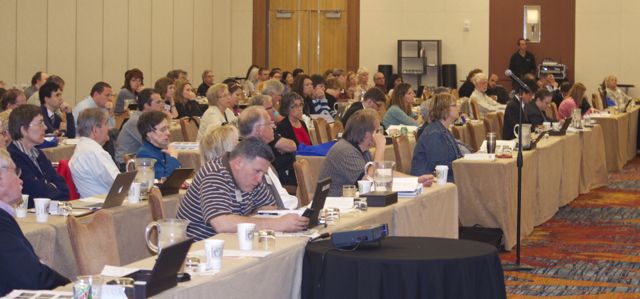Dr. John Kern, a member of the Illinois Psychiatric Society and the American Psychiatric Association serves as one of the 2014 Regional Integrated Mental Health Conference's premier speakers. Below is an article Dr. Kern wrote that was recently published in the Psychiatric News.
Get Started in Integrated Care by Picking Up the Phone
John Kern, MD
This month, John Kern, M.D., an experienced medical director of a community mental health center, shares his experiences with collaborative care programs that have brought new joy to his work and improved the lives of his patients. Enjoy!—Jurgen Unutzer, M.D., M.P.H.
One day in 2007, while minding my own business as a community mental health center medical director, I was first exposed to troubling data on the health outcomes of the patients with severe mental illness published by the National Association of State Mental Health Program Directors.
That was never my problem before, I thought, but now I need to do something about it.
Right there at my desk, I picked up the phone and started to call primary care providers in my community, something that had never occurred to me to do before, though I had been a community mental health doc for 18 years. Integration efforts followed, including a system of collaborative mental health provided in a partner Federally Qualified Health Center (FQHC) organization, then a Primary Behavioral Health Care Initiative grant to improve the health outcomes of our seriously mentally ill adults, and most recently the establishment of Regional Mental Health Center as a completely integrated organization with the creation of our own FQHC.
Blessed by the generous support of the board and leadership of my organization, I have also been fortunate to discover a marvelous, challenging, supportive community of U.S. psychiatrists interested in improving the delivery of care using collaborative models. Many of us work in relatively obscure settings, where scarcity has driven a willingness to risk the implementation of new models of care. Connection to such a community is a tremendous gift, because rolling out novel programs can be challenging.
For example, when I was first invited to set up a collaborative mental health program in a primary care organization, I needed to explain to the primary care staff some peculiar facts: Using our collaborative model, I wasn’t going to be seeing their patients, or writing prescriptions, or whisking the troublesome “frequent flyers” away. They were somewhat mollified to hear that they could get people seen right away by the behavioral health consultant assigned to the clinic and have direct phone access to a psychiatrist through the day. “I can’t remember the last time I saw a psychiatrist up close,” one said. I kept showing up, and fairly soon they decided that I was “almost like a normal person,” which I was assured was high praise when applied to a psychiatrist and good enough reason to give my program a try.
Accepting the collaborative program required some faith on the part of my primary care colleagues. For my part, I was guessing that the collaborative care literature would actually translate to the real world and that I wasn’t jeopardizing my professional reputation by recommending a slapdash model of care.
I was especially worried about a project to manage primary care patients with bipolar disorder. At a Learning Collaborative on Primary Care Behavioral Health, run by the National Council for Behavioral Healthcare, I met some smart people who seemed to think this was a good idea. This didn’t keep me from sitting bolt upright in the middle of the night a few times, and at one point I made a list of the most serious-minded senior psychiatrists I could think of and called them all. I told them what we had in mind—an IMPACT-style consulting psychiatrist program—and waited for them to tell me that this was malpractice, or at least watering down the soup beyond recognition. They said, “Can you come teach my residents about this?” and “I don’t see why you’re fretting about this. This sounds like a really good idea.”
After a few months, the primary care docs picked up that I was eager to please and liked a challenge. “So, smart guy,” said one, “what about all of these patients who say they have ADHD?” Back when I was in training, adult ADHD wasn’t even on the radar, so it was clear that I had a lot to learn if I was going to live up to my promise to be of use to the primary care physicians. I read up and asked the CMHC child psychiatrists (that I was supposedly supervising) to teach me, and after seeing some cases of my own, I was able to write a usable protocol. This is now a routine part of the care provided at the clinic. Who knew such an old person could learn something new?
Psychiatrists providing collaborative care in primary care know that it is usually tons of fun, but I still hadn’t done anything to make an impact on the health outcomes of my patients with serious mental illness, which was supposed to be the point.
Despite some delays, we decided to start working toward providing on-site primary care, by ourselves if necessary. In 2009 came the Primary Care Behavioral Health Initiative from the Substance Abuse and Mental Health Services Administration (SAMHSA). Well, this was right up our alley, all the cool kids were doing it, of course we should apply—only it involved writing a grant. Things have changed a lot since then, but at that time, there was no one at my agency to write this grant, the notion of primary health being our business was still foreign, and of course I had my medical director job.
On the other hand, my kids were pretty much grown, I wasn’t coaching soccer any more, and I had just shelled out for a shiny new MacBook. So I went looking for “Grant Writing for Dummies,” which is the approximate title of the website that SAMHSA maintains for the uninitiated. In the end, this was much like being pushed to manage ADHD—an unexpected opportunity to learn. Near the end, my wife, who had watched me perch at the end of the kitchen table for months, said, “I sure hope you get this grant, or I expect you’ll be in extreme distress.” She also said, “Don’t you ever bring that laptop down here again!” Healthier than she thought, I remained intact after not being awarded the grant, and we continued with unfunded efforts. What did I expect as a rookie?
We were thrilled to be awarded the grant in the second cohort, and then I had another kind of learning opportunity: what do you do when you actually have the resources whose lack you had used as an excuse for not making enough progress on your problem? The first thing you have to learn is your own story. After three months of confusing my staff with talk about metabolic syndrome and clinical decision support and theories of behavior change, one of my staff pointed out that we could explain the objective of the program in nine words: “Improving health outcomes of people with serious mental illness.”
In the tradition of “see one, do one, teach one,” once you have worked in an integrated system for a little while, you are suddenly an expert. People call you to get advice and consultation, and to cry on your shoulder. Recently I got a call from an old friend asking me to chair an initiative for the Illinois Psychiatric Society. “But I don’t even practice in Illinois,” I said. “Doesn’t matter,” he said. “We need your help. No one does this here.” So I squeezed it in—it was too interesting to pass up.
So, here’s what I want my colleagues to know about integrated care:
-
This is really fun work, by far the highlight of my career.
-
The demand for psychiatrists to be involved is tremendous already and will grow in the years ahead.
-
It makes a huge difference to people without access to psychiatric care.
-
It is an opportunity to make an impact in the most interesting part of health care reform.
-
It will transform the work of psychiatrists into something much more interesting and central to medicine.
-
And to get started all you have to do is pick up the phone and call someone you want to work with or one of us who is already doing this. ■
 Thursday, June 11, 2020 at 05:47PM
Thursday, June 11, 2020 at 05:47PM 
